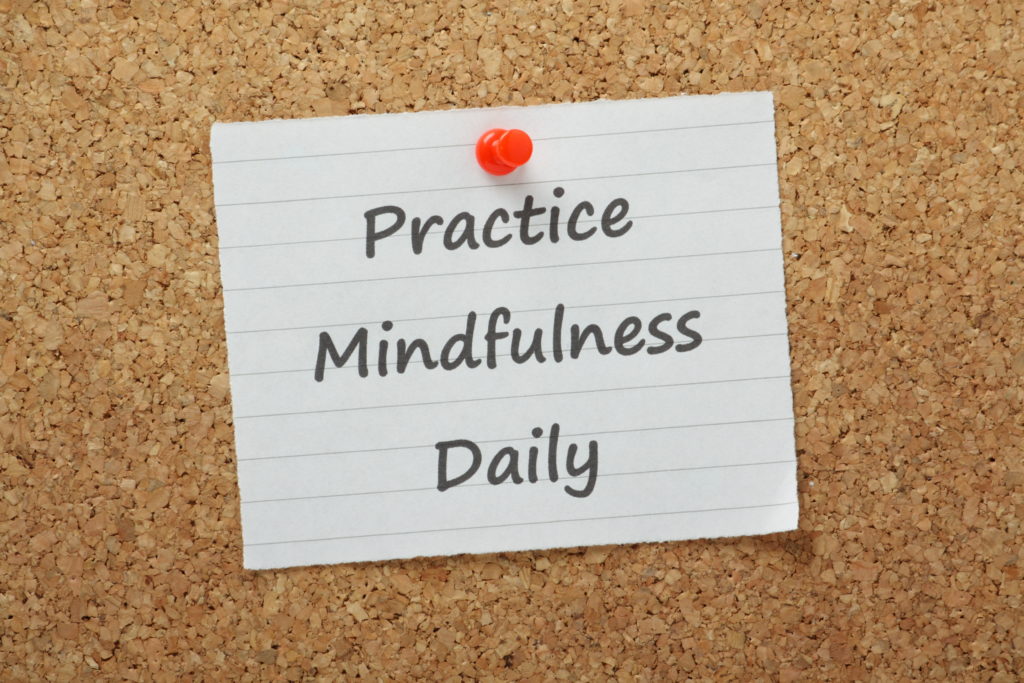
Most of us have heard the term “mindfulness”, but what does that mean? Mindfulness is defined by John Kabat-Zinn as, “Paying attention in a particular way: on purpose, in the present moment, non-judgmentally”. Especially during these uncertain times, mindfulness techniques can help clear the clutter in our heads; the many thoughts and related emotions that lead to stress and anxiety. This type of exercise may be new to us, but with some practice and routine use of these exercises, we can calm our minds. The following are examples of mindfulness exercises to try, see what works for you:
Breathing: A simple breathing exercise, called box breathing, can help calm one’s mind and body. This can be done anywhere, and no one will know you are doing it! Box breathing involves inhaling slowly through your nose for the count of 4, pausing for the count of 4, exhaling through your mouth for the count of 4, and pausing again for the count of 4. Try this a few times and see if you notice a difference in your stress level.
Body Scan: Lie on your back, on the floor or on a bed. Close your eyes. Starting with your feet, move your awareness through your body, focusing on one area at a time. Stop when you feel anything unusual such as tightness or tension. Focus your breathing on that area until it relaxes.
Object Meditation: Hold an object that is special or interesting to you. Focus on the object, noticing all aspects of the object: shape, size, color, texture, smell, etc.
Mindful eating: Use all of your senses to focus on a particular food that you enjoy. Eat slowly, noticing smell, taste touch, appearance, and sound.
Walking Meditation: Take a leisurely walk and notice the sensations in your body as you walk. Observe what is around you, noticing colors, sounds, and smells. Focus on these stimuli and sensations.

As mentioned, these practices do not come easily to everyone. There are several phone apps that help. Some apps are currently free to help with the COVID-19 pandemic. Others have a free trial available.
Mindfulness practices, including meditation, can help us to refocus when our thoughts start to become overwhelming. John Kabat-Zinn suggests that “Meditation is simply about being yourself and knowing something about who that is. It is about coming to realize that you are on a path whether you like it or not, namely, the path that is your life. Meditation may help us see that this path we call our life has direction; that it is always unfolding, moment by moment; and that what happens now, in this moment, influences what happens next”. We can use these practices to manage the stressors that we are experiencing as a result of COVID-19. Hopefully, this quick guide to mindfulness will help you during these challenging times.
Should you find that additional support is needed, feel free to contact a member of the team: Tracy Tierney, MSW, LCSW can be reached at Call us at 703-208-9383 or Tracy.Tierney@USOncology.com. Won Cho, BSW can be reached at Call us at 703-208-9389 or Won.Cho@USOncology.com. Your oncologist and other team members can also refer you to our social work team.
Kabat-Zinn, J. Wherever You Go, There You Are: Mindfulness Meditation in Everyday Life. Hachette Book Group. 1994
Burdick, D. Mindfulness Skills Workbook for Clinicians and Clients: 111 Tools, Techniques, Activities, and Worksheets. PESI Publishing and Media. 2013.










